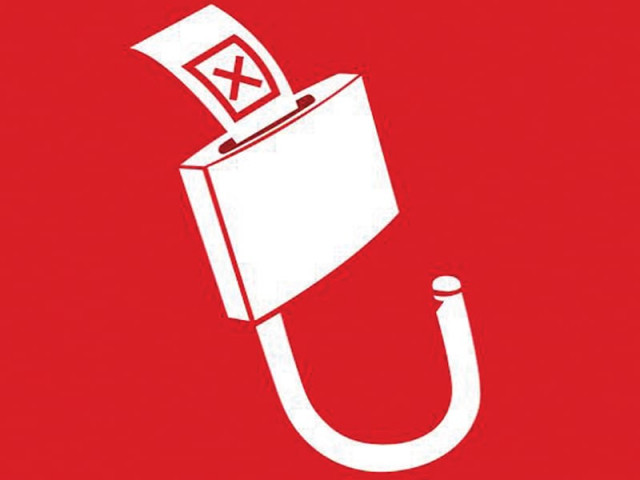Visual artists encourage people to exercise right to vote
The campaign aims to use social media as a tool to create social awareness.

Cortes Laura, Columbia. PHOTO: COURTESY POSTERS FOR TOMORROW
The primary aim of the non-profit organisation was to “empower the common people to actively participate in shaping their country’s future”, said a book published by the organisation. Using social media as a practical tool, the participants were encouraged to become socially conscious, keeping in mind that revolutions can be brought about by a collection of smaller individual actions.
The poster campaign, this year, based on the theme, ‘Draw me Democracy,’ was an attempt to encourage people to participate in civic activities and exercise their right to vote. Prior to the poster competition, a series of one-week workshops were conducted in design schools in different countries to educate students about the art of poster-making. The workshops were funded by the United Nations Democracy Fund.
The workshop for the event was conducted in the visual arts department of Karachi University (KU) in April last year. The guest instructors included Will Georgi from UK and Tommaso Minnetti from Italy, who used their expertise to impart essential skills on the art of poster-making to 30 KU students. The participants’ posters were displayed at local forums, out of which four were selected to be exhibited at the United Nations.

Poster for Tomorrow Pakistan coordinator, Khuda Bux Abro, told The Express Tribune that “Pakistani students currently lack the sophistication and technical skills to effectively convey their message across to the audience through visual arts.” He added that the answer to a lot of the problems we face today as a society can be addressed through educating the public regarding their rights. For this purpose, visual graphics can be the most efficient tool as it can cater to people from all linguistic and cultural backgrounds.
“Our students need to realise the importance of the term ‘less is more’. A simpler representation of your ideas can have a lot more impact on the audience than an overbearing jumble of words and figures,” said KU Visual Arts Department in-charge, Durriya Kazi, while talking to The Express Tribune.
The top 100 posters from around the world are being exhibited at the Arts Council from May 8 until May 10. Four posters among these are by Pakistani students, which had been selected to be displayed at the United Nations. Each of the posters represents the artists’ view of the importance of the democratic system and how it holds the key to society’s progress. The common aspect among all the posters, which have been designed by people from around the world, is the apparent thirst for a change in the socio-political system that rules the world today. Others raise concerns about biased education and consumerist policies.
“We are hopeful our message will go across effectively to the audience, especially in view of the upcoming elections. We want people to realise their vote holds the power to change their destiny. It is time to wake up, take responsibility and vote for a better future,” Abro told The Express Tribune.
Published in The Express Tribune, May 9th, 2013.



















COMMENTS
Comments are moderated and generally will be posted if they are on-topic and not abusive.
For more information, please see our Comments FAQ